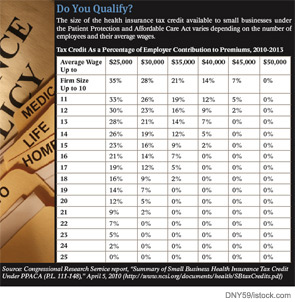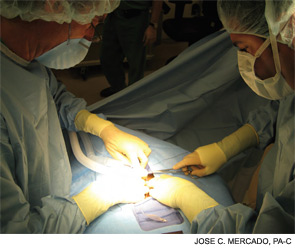The time for otolaryngologists to adopt electronic health records (EHRs) is now, practice management and information technology experts said at a session at the 2010 Annual Meeting of the American Academy of Otolaryngology-Head and Neck Surgery, held here Sept. 26-29.

Your Practice, Your Brand: Top 3 marketing strategies
It’s a common challenge: In a tough economy, do you spend to increase patient revenue or save to keep your practice afloat?

Generation Gap: Combating “fogeyphobia” in the workplace
In an address to the 2009 Combined Otolaryngological Spring Meetings in Las Vegas, neurosurgeon Harry Van Loveren, MD, chair of the department of neurosurgery at the University of South Florida, coined the term “fogeyphobia” to describe a tendency among older doctors to become reluctant to speak out against new surgical tools and techniques, out of fear of being viewed as old-fashioned.

The Opt-Outs: Otolaryngologists extol the benefits of third-party independence
When describing to the curious the benefits of opting out of both Medicare and private insurance, Gerard J. Gianoli, MD, president of The Ear and Balance Institute in Baton Rouge, La., often recalls one particular example: During one 90-day global period about five years ago, after an eight-hour resection of a skull-based glomus tumor, post-operative ICU care and several days of inpatient care and the usual post-operative office visits, he received a total reimbursement of $500.
Audit Agony: Prepare yourself as insurers look to recoup funds
Hayes Wanamaker, MD, an otolaryngologist in Syracuse, N.Y., refers to the recovery audit process of insurance carriers as the proverbial camel’s nose under the tent.

Health Reform Perks: Employer tax credits could benefit your practice
By now, you’re probably well versed in the clinical aspects of the health reform bill signed by President Obama in March. But what you may not know is that the bill includes a section that could benefit otolaryngologists and other physicians in their role as employers.

Digital Dilemma: Physicians oppose EHR requirements
The federal government’s proposed rule establishing incentive payments for physicians who “meaningfully use” electronic health records (EHRs) is too onerous and would discourage physicians from participating, some otolaryngologists say.

A Partner in the Business: Practices see mid-level providers as valuable additions
When Winston C. Vaughan, MD, told his Stanford University patients he was leaving academia to establish a private group practice, they had one question: “Are you taking Kathleen with you?” Their concern attests to the integral role that Kathleen Low, RN, NP, fills as a patient-care provider in Dr. Vaughan’s otolaryngology practice.

A New Game Plan: Otolaryngologists and consultants devise solutions to ride out the recession
Otolaryngologists understand that even their most loyal patients, with finances ravaged by the lingering economic recession, may postpone or forego endoscopic sinus surgery, tonsillectomy or a chemical facial peel in favor of paying the mortgage.

Digital Efficiency: Panel discusses the inevitability of EMRs
Electronic medical records (EMRs) are costly and require significant staff time to implement but have the potential to bring huge benefits to patients and doctors alike, said speakers at the Triological Society’s Combined Sections Meeting held here Feb. 4-7.
- « Previous Page
- 1
- …
- 7
- 8
- 9
- 10
- 11
- Next Page »